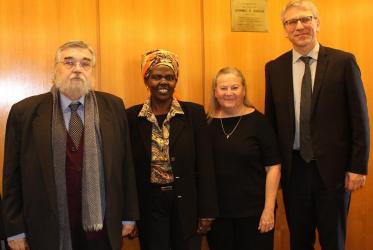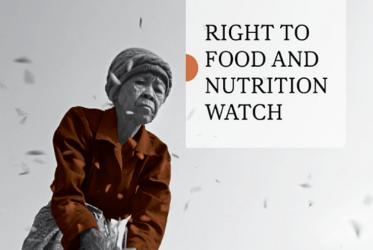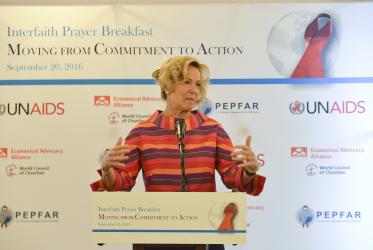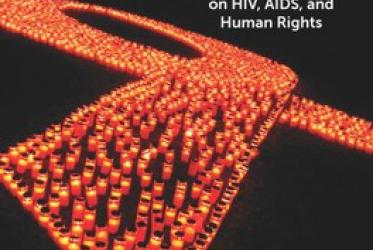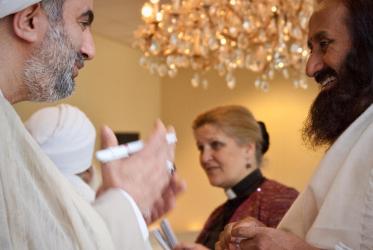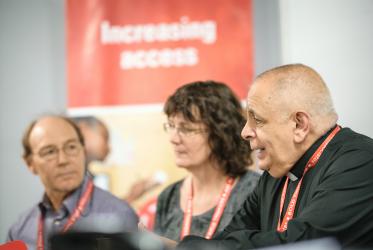Displaying 121 - 140 of 314
21 March 2017
Hoffnung und Historie auf der Agenda des ÖRK-Vorsitzes
16 March 2017
Lead by example: get HIV tested
30 November 2016
Workshops reveal impact of Reformation on today's social issues
07 November 2016
Faith-based groups bring hope for a fast-track HIV response
20 September 2016
WCC book featured in UN discussion on gender, religions and health
16 September 2016
